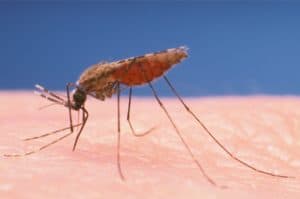Sanofi signs malaria research alliance
pharmafile | May 5, 2011 | News story | Research and Development | Medicines for Malaria Venture, Sanofi-Aventis, malaria
Sanofi-Aventis has signed a research deal with the Medicines for Malaria Venture charity.
They will work together to identify, characterise and optimise new candidate compounds for malaria and conduct early development proof-of-concept programmes.
The three-year research project, called ‘Orthology Malaria’, aims to develop drug candidates from a set of Sanofi’s compounds that have been selected for their potential against malaria parasites.
Each stage of the project will be evaluated by a Sanofi/MMV joint committee and assessed according to MMV’s criteria for compound progression.
Dr Elias Zerhouni, president of global R&D at Sanofi, said: “Sanofi-Aventis has a long-standing history in the pursuit of novel anti-malarial compounds, which are essential to save the lives of more than 750,000 people annually.
“By joining forces with MMV in the search for innovative anti-malarial drugs, Sanofi-Aventis will stay one step ahead in the fight against the malaria parasites that are beginning to show resistance to existing treatments.
“This new partnership will enable us to mobilise each organisation’s expertise, resources and know-how to identify novel medicines for malaria patients,” he added.
The MMV is primarily funded by the Bill and Melinda Gates Foundation and manages over $500 million in funds.
The charity has deals with over 140 pharma, academic and endemic countries and has helped two anti-malarial drugs – Eurartesim and Pyramax – to be filed in the EU.
“The development of new malaria medicines requires the existence of a generous cache of promising compounds of which only a handful will emerge as groundbreaking treatments, after a series of rigorous trials,” said David Reddy, chief executive of Medicines for Malaria Venture.
“Working with the committed Sanofi-Aventis team will help us fill that cache,” he added.
A number of research collaborations exist across pharma to help eradicate the malaria epidemics.
There have already been some promising developments, including a Novartis-led collaboration for spiroindolone NITD60 and a phase I trial for Crucell’s malaria vaccine that began last year.
All these candidates are hoping to be the first in a new generation of anti-malarial drugs for 30 years.
It is especially important as the parasites responsible for malaria are becoming increasingly resistant to the older generation of drugs.
Ben Adams
Related Content

First malaria medicine for infants under 4.5kg receives approval
Coartem (artemether-lumefantrine) Baby, or Riamet, has been approved by Swissmedic as the first malaria medicine …

FDA approves Roche’s test for malaria in blood donors
Roche has announced that the US Food and Drug Administration (FDA) has approved its cobas …

WHO recommends new vaccine for prevention of malaria in children
The World Health Organization (WHO) has announced that it has recommended a new vaccine, R21/Matrix-M, …






